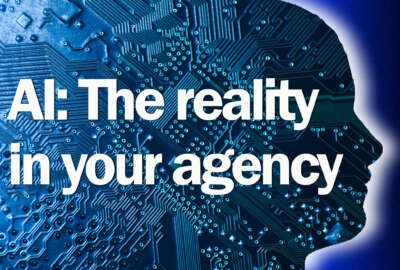
White House reveals plans to save jobs from AI
A new report from the White House outlines a set of priorities that the federal government can follow in order to mitigate any negative impacts on the economy that...
Will artificial intelligence take your job? Maybe, but if so, the government has a plan to help you get a better one.
A new report from the White House entitled “Artificial Intelligence, Automation, and the Economy” outlines a set of priorities that the federal government can follow in order to mitigate any negative impacts on the economy that AI might have, while maximizing the positive ones.
“Our concern is not that there is going to be a discontinuous change, but that there will be continuity. But continuity is what we’ve seen, which is technology that, absent the right policies, could lead to greater inequality. But if we have the right [policies], that need not happen,” said Jason Furman, chairman of the Council of Economic Advisers, during a Dec. 20 press call about the report.
Toward that end, the report lays out three primary strategies for dealing with AI.
‘Invest in and develop AI for its many benefits’
“If care is taken to responsibly maximize its development, AI will make important, positive contributions to aggregate productivity growth, and advances in AI technology hold incredible potential to help the United States stay on the cutting edge of innovation,” the report said.
Here, the concern is actually that there won’t be enough AI in strategically important areas, Furman said. AI has the potential to increase worker productivity in certain fields, which historically yields significant gains in wages and incomes.
“As we look at AI, our biggest economic concern is that we won’t have enough of it, and that we won’t have enough productivity growth, and anything we can do to have more AI will contribute to more productivity growth, and will make possible more wage and income growth,” Furman said.
AI is already augmenting human efforts in fields like data management and analysis, or customer service. The idea is to free humans from the tedium of rote, repetitive tasks so they can devote themselves to more intricate or abstract tasks, like those that involve complex human interaction.
“Government has an important role to play in advancing the AI field by investing in research and development,” the report said. “Among the areas for advancement in AI are cyber-defense and the detection of fraudulent transactions and messages.”
Interestingly, however, that role doesn’t yet include oversight or regulation.
“We don’t see this as an area for aggressive new government action,” Ed Felten, deputy chief technology officer for the White House Office of Science and Technology Policy, said during the call. “This is an area where the technical community and the industry and professional communities are working to address it and we encourage them to continue.”
‘Educate and train Americans for jobs of the future’
Furman said recent decades have shown increases in technology tend to drive income inequality and job displacement.
“Research consistently finds that the jobs that are threatened by automation are highly concentrated among lower paid, lower skilled, and less-educated workers. This means that automation will continue to put downward pressure on demand for this group, putting downward pressure on wages and upward pressure on inequality,” the report said.
Both Furman and the report take the optimistic stance, however, that this can be mitigated through increased investments in education, job training programs and the social safety net.
In broad strokes, this strategy calls for federal investment in education at all levels to foster technological literacy and an understanding of the basic principles on which AI will function, because AI will create jobs in new industries.
For example, new jobs will emerge around engaging directly with AI, to translate complex and possibly subjective human input into data that the AI can understand. For example, the report says while AI may be able to improve detection and diagnoses of diseases, human doctors will still be required to deal directly with patients and translate their symptoms so the AI can analyze them.
‘Aid workers in the transition and empower workers to ensure broadly shared growth’
“AI will help make the pie bigger. We want to make sure that everyone benefits from that pie,” Furman said. “That includes steps like modernizing the social safety net, exploring ways to strengthen and reform unemployment insurance, adding wage insurance, and as a start, making sure you’re not rolling back some of the critical supports we have today, like nutritional assistance and temporary assistance for needy families.”
These programs would help workers who are displaced by AI provide for their families while they gain access to educational programs to train for newer jobs. Because some jobs will disappear, although experts are divided about how many.
“Technological changes do not uniquely determine outcomes,” the report said.
Copyright © 2025 Federal News Network. All rights reserved. This website is not intended for users located within the European Economic Area.
Daisy Thornton is Federal News Network’s digital managing editor. In addition to her editing responsibilities, she covers federal management, workforce and technology issues. She is also the commentary editor; email her your letters to the editor and pitches for contributed bylines.
Follow @dthorntonWFED





